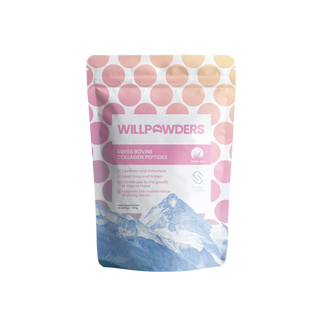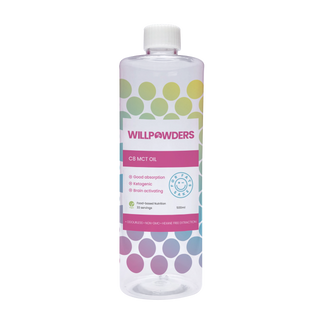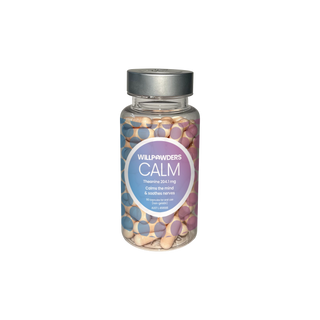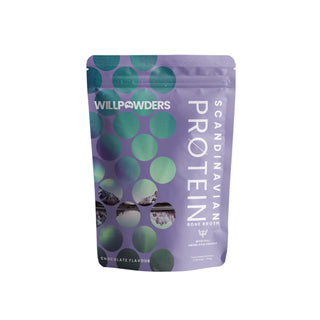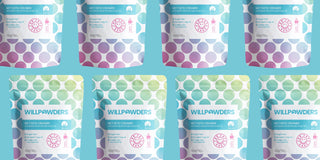
MCT/ Fat Blogs
Fats: The Good, The Bad and The Ugly
Why Fat is Necessary
I’m Fat, You’re Fat, We’re All Made of Fat
At a fundamental level, that is. Contrary to popular belief, we actually need fat to survive—we couldn’t live without it! Every cell in your body has a membrane built from the fats you eat, and your brain is about 60 percent fat. Fat can be a great source of energising fuel, may help keep you full for longer, and might contribute to keeping your skin supple and soft. It may even support wound healing and vitamin absorption. Basically, fat is essential for many biological functions, and without it, your health (and appearance!) could be affected. It’s time to bring back the fat, for fat’s sake!
For years, fat has been cast aside by healthcare professionals, the food industry, and the media in favour of low-fat diets to address obesity and cardiovascular concerns. However, recent research suggests that certain fats may play a role in optimal body functioning. As research evolves, there is more acceptance that fats may support health when eaten in balance with other nutrients.
Good vs. Bad – Understanding the Difference
While eating fat is essential to a balanced diet, it’s important to choose the right types of fat and consume them in appropriate ways. Some fats may support your health, while others might not. Knowing the difference is an important step toward a balanced lifestyle.
The Good
Healthy fats are generally divided into unsaturated and saturated fats. While saturated fats were once considered unhealthy, recent studies indicate that they may also play a positive role as part of a balanced diet, possibly helping to manage cravings for carb-rich foods.
Good fats are often rich in omega-3 fatty acids, which may support a balanced inflammatory response, contribute to heart health, help maintain stable blood sugar levels, and support cognitive function and skin health. They may also help promote satiety and could be a valuable part of weight management strategies.
Sources of healthy fats include:
- Avocados
- Full-fat dairy
- Olive oil
- Coconuts
- Fatty fish
- Nuts
For medium and high-heat cooking, these stable fats are good options:
- Butter
- Ghee
- Duck & goose fat
- Chicken fat
- Pork lard
- Beef tallow
- Coconut oil
- Avocado oil
Monounsaturated oils are best used cold, such as in dressings or on low heat:
- Extra virgin olive oil (high phenolic if possible)
- Hazelnut oil
- Macadamia oil
- Almond oil
Polyunsaturated fats are more delicate and may be best consumed in cold-pressed form, without exposure to heat. They work well for adding flavour to dishes after cooking:
- Sesame oil
- Walnut oil
- Flax-seed oil
- Rice bran oil
The Bad
The following fats are typically industrially processed and may have high omega-6 content. Excess omega-6, particularly from processed sources, could contribute to an inflammatory response in the body. These oils are commonly found in processed, fried foods, and it can be helpful to read ingredient labels to limit these oils:
- Sunflower oil
- Soybean oil
- Canola oil (also known as rapeseed oil)
- Corn oil
- Vegetable oil
- Grapeseed oil
- Safflower oil
- Peanut oil
- Palm kernel oil
- Vegetable oil spreads
- Cottonseed oil
The Ugly
Trans fats are the least beneficial type of fat and are often added to foods through hydrogenation. Research, including a study published in the New England Journal of Medicine, suggests that trans fats may contribute to cardiovascular concerns. These fats are often found in highly processed foods like crackers, cakes, doughnuts, pastries, and some processed nut butters.
Examples of trans fats include:
- Margarine
- Vegetable shortening
- Partially hydrogenated or hydrogenated oils
- High-stearic acid or stearic-rich fat
The Verdict
A healthy diet may include a balanced mix of monounsaturated and polyunsaturated fats, with moderate amounts of saturated fats from natural sources like grass-fed dairy or free-range meats. Aiming for sources like nuts, seeds, avocados, and olive oil, can contribute to a varied diet. For saturated fats, options like grass-fed beef, coconut oil, and MCT oil are a great option.


MCT Keto Powder
WillPowder’s MCT Keto Powder, when mixed into your morning coffee, may offer a boost of steady energy. And, because that energy isn't coming from glucose, with its accompanying blood sugar spikes, you can avoid the slump that comes from fueling with sugar.
Keto Creamer may help keep those pesky cravings at bay. Made from premium-grade Indonesian coconuts and grass-fed butter, WillPowder’s MCT Keto Powder is free from seed and vegetable oils.
If you’d like to explore the effects of seed and vegetable oils, consider checking out Deep Nutrition by Cate Shanahan for more insights.
#juststopseedoil
For those interested in reducing seed oils in their diets, you can join the movement to advocate for limiting these oils, especially in foods marketed to children.
Further Product Information
We recommend a serving size of 4.3g for a large coffee although serving size is up to individual taste.
Not suitable for vegans. If you are pregnant, breastfeeding or taking medication under medical supervision, consult a health professional before using. Not suitable for children under 5. This product should not be used as a substitute for a varied diet. Recommend no more than 4 servings per day.
Disclaimer
Our blogs are written with love in the hope that they go some way in helping you feel like the rockstar you are, and whilst we do our due diligence, research like maniacs and fact check our stuff, we know everyone’s journey is different. They are intended to educate and empower you, not usurp medical advice. We would never advise you to stop, adjust, or modify any prescription medication without the direct supervision of your healthcare practitioner, but don’t be afraid to talk to your doctor about your new found knowledge, brought to you by the marvels of nature because they don't know everything! Blogs are always informed by Davinia but often written by a member of the team. Not all blogs reflect Davinia's experiences and sometimes provide alternative perspectives
 Collagen
Collagen
 Protein
Protein
 MCT
MCT
 Electrolytes
Electrolytes
 Vitamins & Minerals
Vitamins & Minerals
 Nootropics
Nootropics
 Accessories
Accessories
 Books
Books






